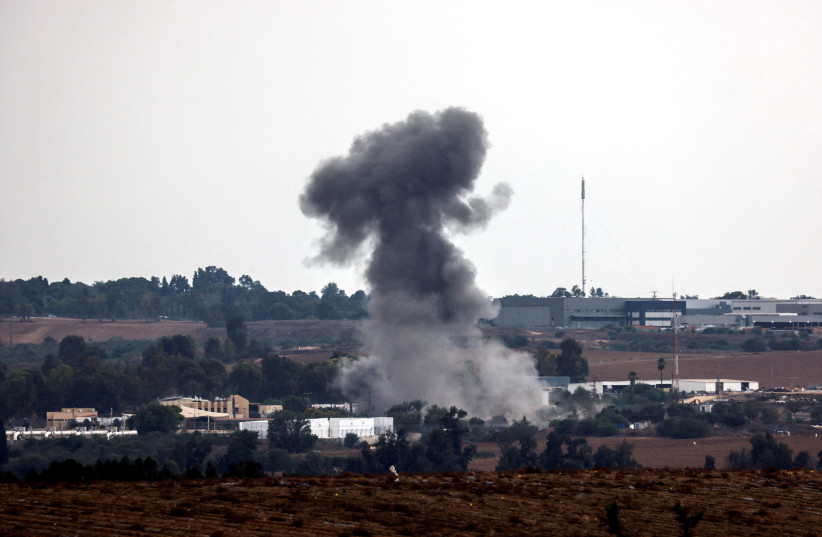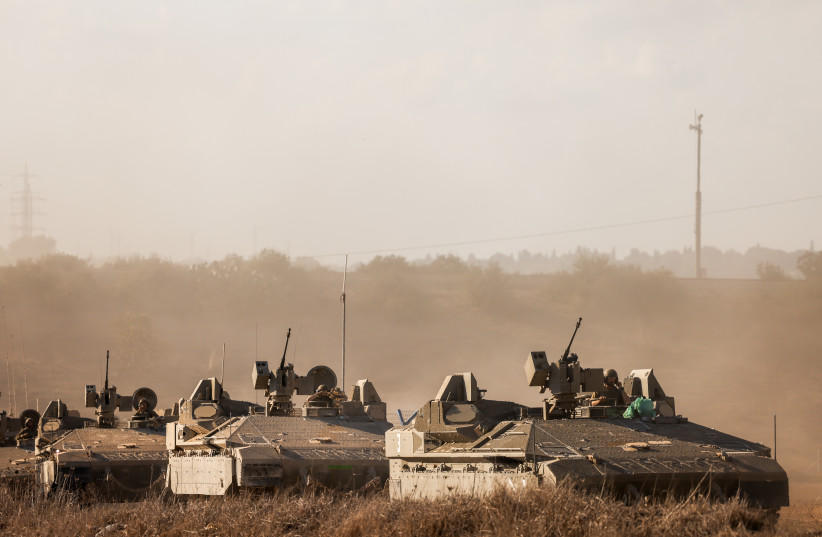The IDF’s air war against Hamas has been impressive by every indicator. Thousands of targets have been hit and the military’s immensely powerful AI target-mining “bank” means the air force is able to continue finding new targets as fast or faster.
Several senior Hamas and Palestinian Islamic Jihad commanders and large portions of their headquarters, terrorism infrastructure, intelligence apparatuses, and symbols of their rule have been killed or obliterated.
The drumbeat from every IDF commander is that they are tearing Hamas to pieces and it is losing more control of Gaza day after day. There is only one problem with this narrative. Hamas is still firing rockets – every day – and lots of them.

Rockets reach Tel Aviv area, rare infiltrations remain
Not only that, but the terrorist group is firing at the center of the country daily, along with the “expected” more regular strikes at civilians from Gaza.
Moreover, although penetrations into Israel by Hamas terrorists on foot across the Gaza border have become rare as the war goes into the middle of its second week, they have not actually stopped.
How “high quality” can many thousands of targets be if they cannot stop Hamas from firing its rockets? How high quality can thousands of targets ever be?
This was a lesson that the US learned belatedly in Vietnam, when it celebrated how many low-ranking Vietnamese foot soldiers it killed without achieving any strategic breakthrough or influencing the Vietnamese overall perception that they were succeeding in wearing the US down.
Hamas is holding most of its rockets
In fact, The Jerusalem Post understands that Hamas is purposely holding back the majority of its rocket arsenal (estimates are that it may have used as little as a third of its arsenal so far) so that it can continue to pound Israel for the long haul.
In 2014, Hamas maintained rocket fire on Israel for 50 days; the focused and intentional use of its rockets since October 7 shows that it is far more advanced in rocketry now than it was back then. All of this means that Hamas is also nowhere near collapse.
However, is it able to manage every area of Gaza as a sovereign government as it could two weeks ago? No. Its civilian authority may have collapsed in many ways, while its military authority may hold out for a while longer. If continues to rain fire down on Israel’s civilians in most of the country for weeks if not months, Hamas’s military collapse is clearly not imminent.
Behind closed doors, air force officials would admit that their main role soon will be to help pave the way for the land invasion, but that only a deep land invasion which completely roots out Hamas terrorists from their wide spectrum of booby-trapped hiding places will be able to have a chance of truly reducing or ending the rocket fire.

And still, even a general military collapse might not fully end the rocket fire. One of the cardinal dilemmas that Israeli security is facing at the moment is how close Gaza actually is to Israel. If a terrorist crew in Gaza successfully finds one block where the IDF is not patrolling for a few minutes, and were to use that time to fire a low-tech makeshift rocket before being spotted – Hamas can keep up sporadic rocket fire against Israel, even if its central military efforts collapse soon.
And all of that is in the best-case scenario – where Israel manages to install a new leader in Gaza instead of Hamas: the Palestinian Authority, a multinational force, or some hybrid of the two backed by Israeli security imperatives – who would keep Hamas from returning to power and bringing us back to square one?
That best-case scenario is far from certain, given that the longer the war draws on, the more apparent it is that Israel has no idea who should manage Gaza if it actually fully topples Hamas.
There is no question that the IDF will “win” tactical victories against Hamas with its overwhelming qualitative weapons advantages. But it is deeply uncertain how soon – and whether – the IDF can cause Hamas to completely collapse militarily, or to at least end the rocket fire on the Israeli home front.
